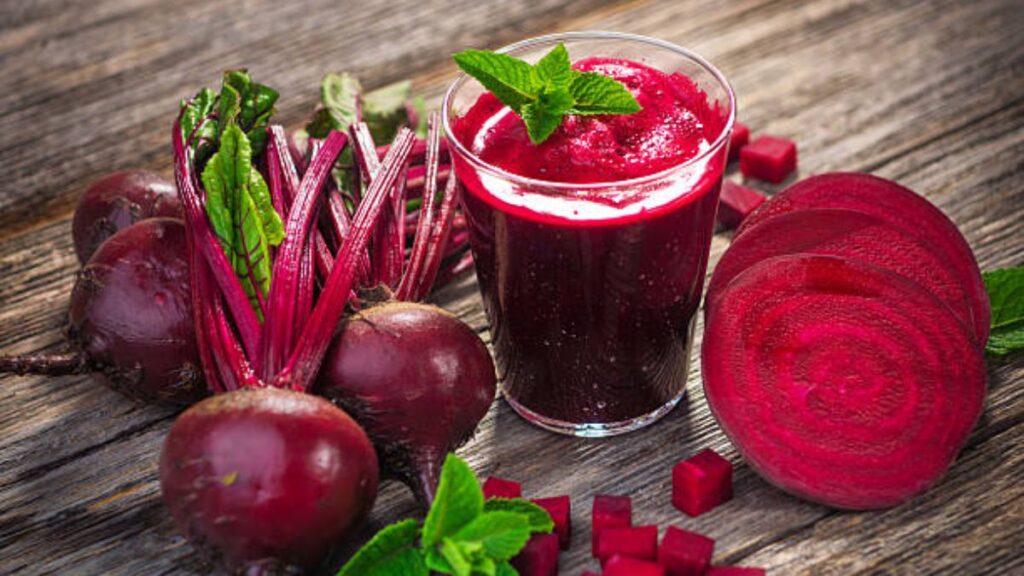4 Easy and Healthy Ways to Add Beetroot to Your Daily Diet

Beetroot, the vibrant red root vegetable, is gaining popularity not just for its earthy flavor but for its wide range of health benefits. Whether consumed raw or cooked, this superfood can significantly enhance your overall wellness. But which way is best—raw or cooked? And how can you include beetroot in your everyday meals without much effort? Let’s dive into the nutritional facts, benefits, and practical ways to incorporate beetroot into your diet.
Why Beetroot is a Superfood
Beetroots are packed with essential nutrients like folate (vitamin B9), iron, potassium, magnesium, manganese, and vitamin C. They support blood health, boost immunity, and improve energy levels. Because they are low in calories and high in fiber, they also help in weight management.
A 2021 study published by the National Library of Medicine revealed remarkable results from the daily consumption of raw beetroot in people with type 2 diabetes. Over an eight-week period, it showed reduced fasting blood sugar, HbA1c levels, liver enzymes (AST and ALT), and blood pressure. It also increased antioxidant capacity and improved cognitive function—making beetroot a powerful ally for those managing diabetes.
Raw vs Cooked Beetroot: Nutritional Comparison
Raw Beetroot (per 100g):
- Calories: 43
- Carbs: 9.6g
- Fiber: 2.8g
- Sugars: 6.8g
- Protein: 1.6g
- Fat: 0.2g
- Folate: 109 µg
- Vitamin C: 4.9 mg
- Potassium: 325 mg
- Iron: 0.8 mg
- Magnesium: 23 mg
Cooked Beetroot (per 100g):
- Calories: 44
- Carbs: 10.0g
- Sugars: 7.0g
- Protein: 1.7g
- Fat: 0.1g
- Folate: 80–100 µg
- Potassium: 300–325 mg
- Iron: 0.7–0.9 mg
- Manganese: 20 mg
Conclusion: Raw beetroot retains more antioxidants and vitamin C, while cooking breaks down fiber, making it easier to digest. Cooking also enhances sweetness and helps retain key minerals like potassium and iron.
Benefits of Raw Beetroot
- Rich in fiber that aids digestion and prevents constipation
- High in folate, promoting heart health and cell growth
- Loaded with antioxidants like betalains, which fight inflammation
- Contains dietary nitrates that help lower blood pressure and boost stamina
- Supports detoxification and improves skin health
Benefits of Cooked Beetroot
- Easier to digest due to softened fiber
- Retains essential minerals even after cooking
- Boiling preserves a good amount of folate
- Supports muscle function, oxygen transport, and heart health
- Still contains blood-pressure-lowering nitrates despite some antioxidant loss
Beetroot Juice: A Nutrient Powerhouse
Beetroot juice is a favorite among athletes for its ability to increase oxygen efficiency during workouts. It’s also rich in antioxidants like betalains, which support liver detoxification and help eliminate toxins from the body.
4 Easy Ways to Include Beetroot in Your Daily Diet
If You Prefer Raw Beetroot:
- Juices & Smoothies: Blend raw beetroot with apple, carrot, or orange for a detoxifying drink.
- Salads: Grate raw beetroot and combine it with leafy greens, feta cheese, and nuts.
- Raita: Mix grated beetroot with sweet curd, add salt, pepper, and a dash of chaat masala.
- Wraps & Sandwiches: Use thin beetroot slices or shreds for extra crunch and color.
If You Prefer Cooked Beetroot:
- Sabzi or Stir-fry: Dice beetroot and cook with mustard seeds, curry leaves, and coconut.
- Stuffed Parathas: Mash cooked beetroot with spices and fill into paratha dough.
- Hummus or Spreads: Blend cooked beetroot with chickpeas or other beans for a vibrant twist.
- Desserts: Use cooked beetroot in cakes, brownies, or mini pancakes sweetened with jaggery.
These simple methods not only preserve the nutrition but also make beetroot a versatile ingredient across meals and cuisines.










